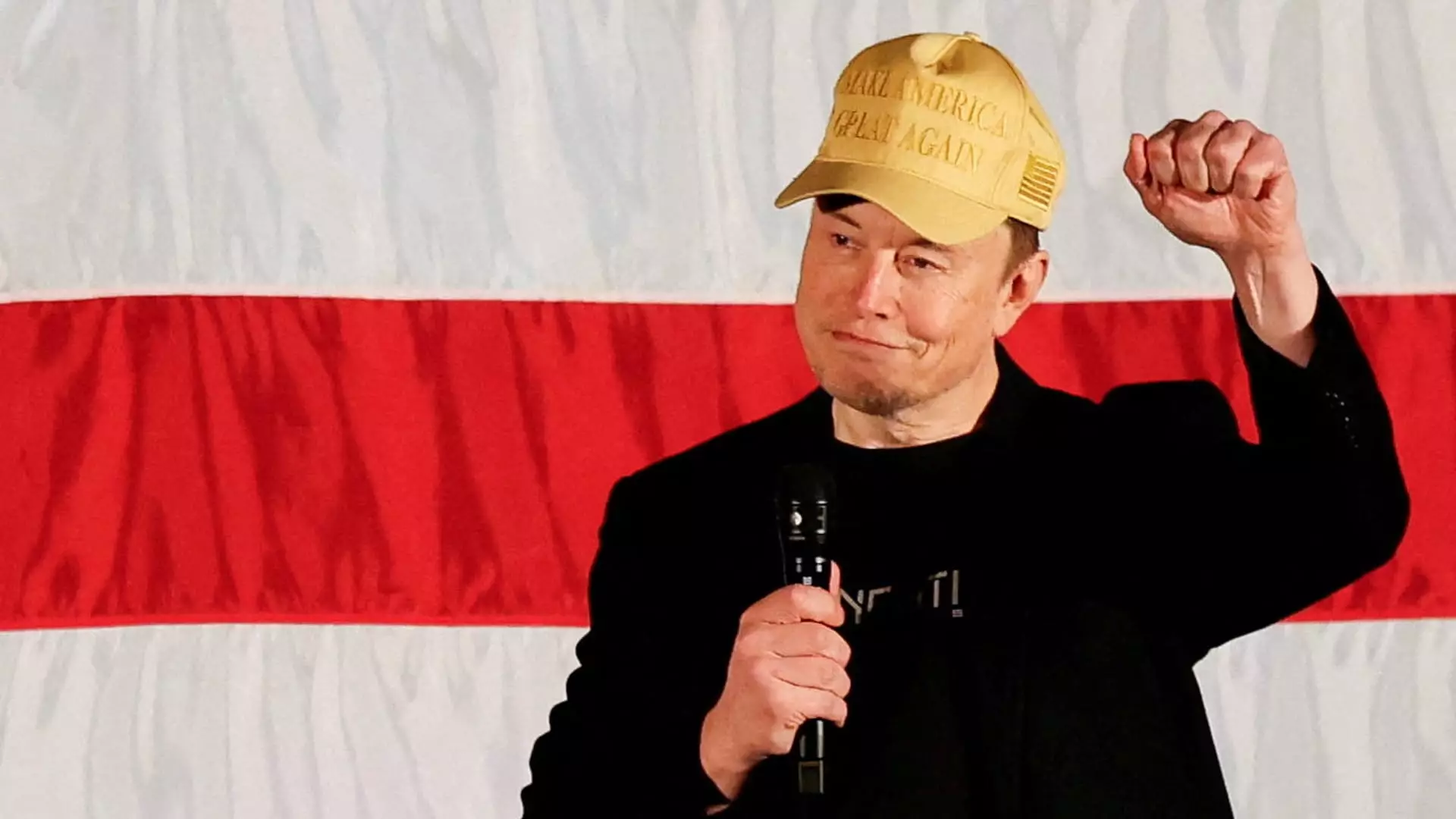Elon Musk is no stranger to the spotlight, and his recent foray into political advocacy exemplifies his penchant for controversial and unconventional strategies. At a recent event in Harrisburg, Pennsylvania, Musk announced a peculiar promotion: he would allocate $1 million every day to registered voters who support his political action committee (PAC), which notably endorses former President Donald Trump. To many, this initiative could be seen as an innovative call to action, but it also raises significant ethical and legal questions about the nature of political influence and the integrity of the electoral process. Musk’s assertion that this initiative is simply “a good use of money” offers little reassurance amid concerns about the implications of such wealth-driven incentives for participation in democracy.
Musk’s announcement included an immediate demonstration of his plan, where he presented a giant check to a petition signer named John Dreher. The stipulations attached to this $1 million prize involve petitioning for his pro-Trump PAC while ensuring that recipients are registered voters from key swing states such as Arizona, Georgia, and Pennsylvania—states that Musk deems critical for the upcoming elections. By using financial incentives to rally support, Musk’s approach attempts to galvanize voter engagement within demographics that might be swayed by his celebrity stature. However, one must ponder whether this is a genuine effort to enhance voter turnout or merely a tactic to amplify his political will using his substantial resources.
Legal analysts are already weighing in on the potential ramifications of Musk’s initiative. UCLA law professor Rick Hasen has voiced his belief that the scheme likely violates federal election laws, which explicitly prohibit the exchange of money for votes or registration. Such legal concerns underscore a critical debate surrounding the intersection of wealth and political participation. As Hasen articulates, allowing financial incentives to dictate voter behavior could transform democracy into a commodity, vulnerable to the whims of the affluent. This predicament raises questions about whether elections can remain just and equitable when figures like Musk wield their financial leverage in such overt ways.
During his speaking tour, Musk expressed a deep-seated skepticism of government efficacy, a sentiment he has cultivated over years of public discourse. He has oscillated between dependence on government support for his ventures—such as SpaceX and Tesla—and vehement criticism of regulatory bodies, claiming they stifle innovation. His remarks reveal a complex relationship with government institutions: he simultaneously critiques their inefficiency while benefiting from their funding and support. Musk’s call for a “government efficiency commission,” one that he claims would include his expertise, raises eyebrows about conflict of interest and the motivations behind his advocacy.
Musk’s speeches have not shied away from incendiary language, including veiled comments about violence that have drawn scrutiny from law enforcement agencies. Such statements dilute the seriousness of political discourse and perpetuate a troubling normalization of aggressive rhetoric in political arenas. By trivializing executive roles and enflaming tensions, Musk’s words resonate beyond an average political rally—they cultivate an atmosphere where vitriol and partisanship overshadow productive dialogue.
Moreover, Musk’s lackadaisical stance on union efforts at Tesla highlights a broader narrative. His antagonism towards labor movements starkly contrasts with the pro-union policies of the Biden administration. Musk’s insistence on minimizing governmental involvement echoes a libertarian ethos that valorizes market freedom over regulatory compliance, yet his actions as a business magnate frequently contradict this premise by leaning heavily on public funding.
Ultimately, Musk’s foray into politics illustrates the troubling conflation of celebrity and political power. By harnessing his vast wealth to influence electoral outcomes, Musk represents a growing trend where affluence supersedes individual voter agency. This presents a fundamental challenge to the democratic ideal of one person, one vote, wherein wealth is suddenly afforded more significance than civic engagement. As he navigates the complex intersection of business interests and political clout, the long-term implications for electoral integrity and public trust remain to be seen.
Elon Musk’s recent political engagement serves as a potent reminder of the transformative and sometimes troubling role that wealth plays in democracy. Whether this initiative successfully mobilizes voters or threatens the electoral process as we know it is a question that looms large in the hearts and minds of citizens reflecting on the true meaning of democracy.


Leave a Reply